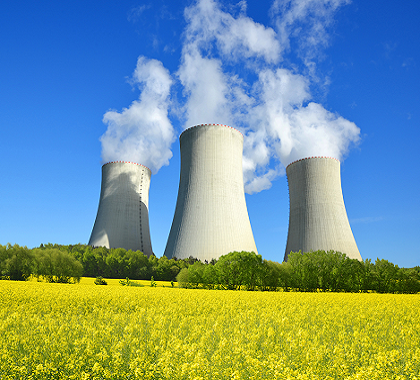The Georgia Public Service Commission is charged with regulating electricity supply to Georgia’s citizens. Part of that mission is safe, reliable, and economical supply of electricity. To the great fortune of Georgian’s, this mission has been admirably accomplished for more than a half century. Georgia has never had electricity shortages where citizen’s worried about supply and subjected to blackouts or rolling brownouts as experienced by Northeastern states or other states like Texas and California.
Georgia’s success may be attributed to its system of electing members of the Public Service Commission, which make them more responsive to ratepayer’s welfare. Those who suggest changing this system do so at their peril. Adjusted for inflation, the cost of electricity today in Georgia is as cheap as it has ever been.
The U. S. Energy Information Administration’s (USEIA) latest price data shows the residential rate for Georgia customers September 2016-YTD is 11.63 cents per kilowatt-hour versus the national average of 12.58 cents per kilowatt-hour–a 7.6 percent reduction. Data for all sector generation is 9.60 cents per kilowatt-hour for Georgia versus the national average of 10.33 cents per kilowatt-hour—a 7.1 percent reduction. This in spite of the fact Georgia has no coal, oil, natural gas, uranium, or Columbia or Colorado Rivers as domestic energy resources. It is easy to have cheap electricity with power plants on mine-mouths, natural gas fields, or Hoover Dams. Much of Georgia’s energy for electricity production has to be transported over 1000 miles.
USEIA data for September 2016-YTD shows Georgia’s electricity generation is 28.9 % by coal, 40.6% by natural gas, 24.5 % by nuclear power, and 6.0% by renewable energy sources. Data shows total electricity generation in September 2016-YTD is 2.2% higher than in September 2015-YTD versus a national average decrease of 0.6%. Only 14 other states had higher rates of increase in electricity use than Georgia. In spite of great improvements in efficiencies of electricity use caused by LED lights and LED flat screen television, Georgia is a truly growth state.
The two new 1100 Megawatt nuclear power plants under construction in Georgia will increase Georgia’s capacity to generate nuclear electricity by more than 50 percent. Thus the 24.5% nuclear power generation in the state will increase above 36% when these plants are in operation. Georgia could have nuclear power supply all its electricity in early mornings of mid-spring or mid-fall.
There are complaints about using nuclear power from both economic and societal issues. These complaints are overshadowed when considering the increased reliability of electric power supply provided by these new units. Nuclear power can provide more than one-third of Georgia’s electricity demand. The plants operate more than 90 percent of the time and refueling may take place at intervals longer than 18 months.
Rising costs for the two nuclear power plants may end up above $8 million per Megawatt. This is a great amount of money; but people should remember these plants have capacity factors exceeding 0.9 over a 60-year operating life. A one-Megawatt power plant would produce more than 473,000 megawatt-hours over this time period. A grossly simplified capital cost would produce a capital cost of $17 per Megawatt-hour or 1.7 cents per kilowatt-hour. Our 40 year old nuclear power plants are now having their operation licenses extended to 80 years. It is reasonable to expect the Vogtle 3 and 4 units to be operating until the 22nd century.
Due to EPA regulations and abundant natural gas supply, Georgia is gradually shifting electricity supply from coal to natural gas. Coal-fired plants can store ninety-day supplies of coal on plant sites; while the low density of natural gas as a fuel makes it impractical for storage of long term supplies. Those with long memories may remember United Mine Workers’ President John L. Lewis who frequently called miners out on strike which threatened electricity supply. Thus we have large coal piles as protection against supply disruptions. Natural gas supplies are disrupted by extreme weather events as shown by hurricanes Katrina and Rita in 2005 and Gustav and Ike in 2008.
Georgia Public Service Commission’s support of present, and two additional, nuclear power plants provides security against catastrophic loss of electricity supply and Georgia’s citizens should appreciate this concern. In an emergency, Georgia’s six nuclear power plants could supply electricity to all residences for a long time.
A factor not mentioned in support of nuclear power is its influence on domestic reserves of coal and natural gas. One of the new 1100 Megawatt nuclear power plants would consume over its 60-year lifetime as a fossil-fueled plant 230 million tons of coal or 5 trillion cubic feet of natural gas. This is equal to about 20 percent of our annual use of either coal or natural gas. Nuclear power plants extend the life of our fossil fuel reserves far out into the future and reduce future price increases. Due to expected nuclear power plant operating lifetimes being extended to 80 years, these savings are greater than cited. Georgia’s six nuclear power plants would save more than one year’s use of either natural gas or coal.
Opponents of nuclear power will say construction costs of Vogtle units 3 and 4 should not be paid by customers until the plants are in commercial operation and customers are using the new cheaper fuel-cost nuclear powered electricity. This argument is counter to ways our society operates. Federal, state, and local taxes are paid by electricity consumers for a vast host of items that assist our high standard of living. Payments in advance of use are for roads, schools, recreational facilities, prisons, law enforcement, public servant pensions, etc. Born in 1936, I never expected to benefit from Vogtle units electricity. But in the course of my lifetime I knew individuals had paid for facilities that benefited me such as universities (4) I attended during my 10-year engineering education.
Georgia should resist any attempts to mandate electricity production by any form. Mandates in other states have caused electricity rates that exceed Georgia’s. Governments are not noted for making wise economic decisions.
—————————————————————————–
James H. Rust is a retired Georgia Tech nuclear engineering professor with over 50 year experience in energy policy. He authored Nuclear Power Plant Engineering, co-authored Elements of Nuclear Reactor Design, and co-edited Nuclear Power Safety. Rust has numerous technical publication; many honors including the Georgia Society of Professional Engineers 1981-82 Engineer of the Year; and policy advisor for The Heartland Institute.





